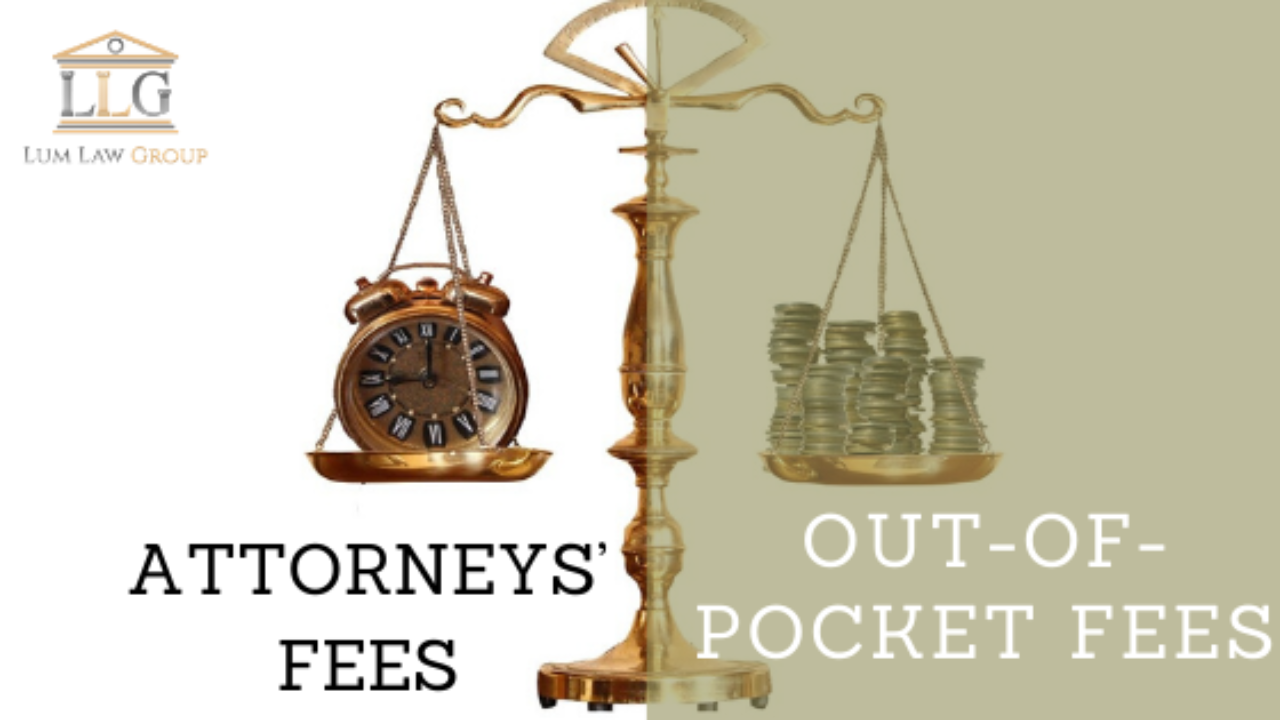What fees should a Seller expect at a Boston condo closing?
Boston Condos for Sale and Rent
Loading...
What fees should a Seller expect at a Boston condo closing?
The financial aspects of selling your Boston condo go beyond the listing price – it’s essential to factor in the closing costs as well. These unexpected expenses can take a bite out from your profits if you’re not prepared. Get ready to navigate this complex terrain with our comprehensive guide on what to expect when it comes to Boston Condo seller closing costs. Buckle up for an insightful journey that will transform your selling experience from daunting to empowering.
As a condo seller in Boston, some typical closing costs you can expect to pay include real estate commissions, state transfer taxes, local recording fees, real estate attorney fees, repair costs, outstanding HOA fees, and staging costs. On average, sellers in the Greater Boston Area can expect to pay between 4.5% to 7% of their sale price in closing fees. However, these costs may vary depending on your specific circumstances and should be discussed with your real estate agent or attorney.
Key Closing Costs for Boston Condo Sellers
When selling a condo in Boston, it’s crucial to be aware of the key closing costs you may encounter. These costs can vary based on several factors, including the sale price of your condo, any negotiated agreements with the buyer, and specific requirements set by your lender or attorney. Being well-informed about these expenses allows you to budget accordingly and avoid any surprises as you navigate through the selling process.
- On average, sellers in the Greater Boston Area can expect to pay between 4.5% to 7% of their sale price in closing fees.
- The two largest closing costs for sellers in Massachusetts are real estate commissions and the real estate transfer tax, which is levied at a rate of $4.56 per thousand (or 0.456%) in most counties.
- Commission rates in Boston are typically negotiable, ranging from 4% to 6% of the final sale price.
Attorney Fees and Paperwork Expenses
One of the significant closing costs for condo sellers in Boston is attorney fees. While Massachusetts does not require an attorney to be involved in real estate transactions, having legal representation can provide valuable guidance and ensure that all necessary paperwork is handled correctly. Attorney fees typically range from $500 to $1,500 or more, depending on the complexity of your transaction.
Your attorney will be responsible for various tasks during the closing process, such as reviewing and drafting contracts, conducting title searches to ensure there are no liens or encumbrances on the property, preparing the deed, and addressing any legal issues that may arise. They will also guide you through the negotiation process and protect your interests throughout the transaction.
In addition to attorney fees, sellers should also consider other paperwork-related expenses. This includes document preparation fees, which cover the cost of preparing required forms and documents for the closing. These fees can vary but generally range from around $200 to $500.
It’s important to remember that working with an experienced attorney can provide peace of mind and help navigate potential legal complexities that may arise during the sale of your condo.
For instance, imagine you’re selling your Boston condo at a higher price point with unique features. Having an attorney who specializes in real estate law can ensure that all necessary disclosures are made regarding the property’s condition or local regulations. This extra layer of protection can save you from potential future legal troubles.
When selecting an attorney for your condo sale, it’s advisable to shop around for quotes and seek recommendations from trusted sources. Look for professionals experienced in real estate transactions specifically within the Boston area, as they will be familiar with the local laws and regulations.
Now that we have explored attorney fees and paperwork expenses, let’s move on to another significant closing cost for Boston condo sellers – real estate commission and transfer taxes.

Boston condos for sale
Real Estate Commission and Transfer Taxes
When selling a Boston condo, one of the most significant costs to consider is the real estate commission. This is the fee paid to the real estate agents involved in the transaction, typically calculated as a percentage of the final sale price. The national average real estate agent commission is around 5.8% of the property’s sales price, covering both the listing agent and buyer’s agent fees. However, it’s important to note that this percentage can vary depending on the specific agreement made with your chosen agent.
In addition to the real estate commission, there may also be transfer taxes to factor into your closing costs. Transfer taxes are imposed by certain municipalities or states and are typically calculated as a percentage of the property’s sale price. In some cases, these taxes might be split between the buyer and seller based on local regulations or negotiation. For example, some communities in Massachusetts are proposing a transfer fee on real estate transactions above $1 million to fund affordable housing initiatives.
Let’s say you sell your Boston condo for $500,000 and have agreed upon a 6% real estate commission with your agent. That means you would owe $30,000 in commission fees. In addition, if your municipality imposes a transfer tax of 1%, you would need to account for an additional $5,000 on top of your other closing costs.
It’s crucial to work closely with your real estate agent and do thorough research on any potential transfer taxes applicable in your area. Additionally, understanding what services your agent provides for their commission can help you assess whether their expertise and support justify their fee.
Now that we’ve explored real estate commissions and transfer taxes, let’s turn our attention to other potential costs that may arise during the process of selling your Boston condo.
- When selling a Boston condo, sellers should consider the real estate commission, which is typically around 5.8% of the final sale price but can vary depending on the agreement made with the agent. Transfer taxes may also be imposed by certain municipalities or states and are usually calculated as a percentage of the property’s sale price. It’s important to work closely with your agent and research any potential transfer taxes applicable in your area to understand the additional costs that may arise during the sales process.

Additional Potential Costs
Selling a home involves more than just the real estate commission and transfer taxes. There are several other potential costs to be aware of, which can vary depending on the individual circumstances of your sale. Here are a few that you should consider when budgeting for your closing costs:
Home Repairs and Maintenance: It’s common for sellers to make repairs and updates to their homes before putting them on the market. These expenses might include fixing plumbing issues, replacing worn-out flooring, or repainting walls to increase the overall appeal and value of the property.
Staging and Photography: Investing in staging services and professional photography can greatly enhance your condo’s presentation and attract more potential buyers. While this is optional, it can significantly impact the selling price and time on the market.
Pre-Sale Inspection: Some sellers choose to conduct a pre-sale inspection to identify any potential issues or repairs needed before listing the property. This proactive approach can help you address concerns upfront and potentially avoid costly surprises during negotiations.
Closing Costs: In addition to the real estate commission, there are various closing costs involved in finalizing the sale. These may include attorney fees, title search fees, title insurance, recording fees, and any outstanding property taxes or homeowner association fees.
Let’s say you decide to invest in home repairs and updates, hire a staging service, conduct a pre-sale inspection, and cover closing costs. Depending on the extent of repairs and services required, these additional costs could easily range from a few thousand dollars up to tens of thousands.
While it’s essential to consider these potential costs when budgeting for your condo sale, it’s important to note that not all sellers will encounter every expense listed above. Every situation is unique, so it’s crucial to evaluate your specific needs and consult with professionals who can guide you through these financial considerations.
Home Repairs and Outstanding Fees
When it comes to selling a Boston condo, home repairs and outstanding fees are essential factors to consider. Before listing your condo, it’s crucial to ensure that the property is in good condition and address any necessary repairs or maintenance. This not only enhances the overall appeal of the property but also helps avoid potential issues during the buyer’s inspection.
Start by conducting a thorough assessment of your condo. Look for any visible damages such as leaky faucets, cracked tiles, or faulty electrical fixtures. It’s advisable to hire a professional inspector who can provide expert guidance on identifying potential repair needs and advise on prioritizing them based on their urgency and impact on the sale price.
For instance, if your condo has outdated plumbing or HVAC systems that are not functioning efficiently, addressing these issues before listing can greatly increase the chances of attracting buyers and securing a higher price. On the other hand, minor cosmetic improvements like fresh paint or landscaping can significantly enhance the visual appeal of your property.
Besides home repairs, don’t forget to account for outstanding fees associated with owning a Boston condo. These may include monthly association fees, special assessments, or unpaid property taxes. Failing to settle outstanding fees before closing can lead to complications and potentially delay the sale process.
Now that we have covered the significance of home repairs and outstanding fees when selling a Boston condo, let’s dive into understanding how to effectively budget for closing costs.
Budgeting for Closing Costs
Selling a Boston condo involves various expenses that need careful consideration during the budgeting process. Understanding and planning for these closing costs can prevent surprises and help you prepare financially for a smooth transaction.
One of the primary components of closing costs is broker commissions. Typically, sellers are responsible for paying both their own agent’s commission as well as the buyer’s agent commission. The standard commission rate is around 5-6% of the sale price, but this can vary based on the agreement between the seller and their agent.
Additionally, attorney fees are an important aspect of closing costs. Having legal representation throughout the selling process ensures that all necessary paperwork is in order and protects your interests. Attorney fees may vary depending on the complexity of the transaction and the attorney’s hourly rates.
Another significant expense to consider is title insurance. This insurance protects both the buyer and seller from any potential title defects or claims against the property. The cost of title insurance is typically based on the sale price of your condo.
Other potential closing costs include escrow fees, transfer taxes, document preparation fees, and recording fees. It’s crucial to carefully review and understand these costs with your real estate agent or attorney to avoid any surprises.
For example, let’s say you’re selling a Boston condo with a sale price of $500,000. Based on average closing costs in Massachusetts, you can expect to pay around $25,000 – $30,000 in total closing costs. However, it’s important to note that every transaction is unique, and actual costs may vary depending on specific circumstances.
Understanding how to budget for closing costs is essential for sellers looking for a smooth transaction. In the next section, we will explore possible strategies to reduce these costs without compromising on a successful sale.
Reducing Closing Costs: Possible Strategies
When it comes to selling your Boston condo, closing costs can be a significant expense to consider. However, there are strategies you can employ to help reduce these costs and potentially retain more of the sale proceeds in your pocket. Let’s explore some possible strategies for reducing closing costs.
One effective approach is to negotiate with the buyer to share or cover certain closing costs. This can be done by including specific terms in the purchase and sale agreement that outline which costs each party will be responsible for. By carefully negotiating these terms, you may be able to shift some of the financial burden onto the buyer, helping to alleviate your own expenses.
Another strategy is to shop around and compare service providers for various aspects of the closing process, such as real estate agents, attorneys, and title companies. Fees charged by these professionals can vary significantly, so it’s worth taking the time to research and obtain quotes from different providers. By doing so, you can potentially find more cost-effective options that still provide quality service.
For instance, let’s say you receive quotes from multiple attorneys for handling the legal aspects of your condo sale. While one attorney may charge a higher flat fee per transaction, another might offer a lower fee with comparable expertise and services. Choosing the attorney with the lower fee in this scenario could help reduce your overall closing costs.
“When I was selling my condo in Boston last year, I decided to explore different options for service providers. By shopping around and comparing fees from various real estate agents and attorneys, I was able to find professionals who offered competitive rates without compromising on quality. This helped me significantly cut down on my closing costs.”
Consider timing as another crucial factor in reducing closing costs. In certain cases, sellers may have more leverage when it comes to negotiating lower fees if they choose to list their condo during off-peak seasons or when market conditions are not as favorable. For instance, listing your condo for sale in the winter months when there tends to be less competition may make it easier to negotiate lower fees with real estate agents and other professionals involved in the closing process. By strategically timing your sale, you could potentially benefit from reduced expenses.
Another strategy to explore is reviewing the closing disclosure statement carefully. This document provides a breakdown of all the costs associated with the closing process, including fees for services rendered. By going through this statement line by line, you can identify any unnecessary or duplicate charges that may be negotiable or can be eliminated altogether. It’s important to be vigilant and question any items that seem questionable or excessive. You have the right to challenge these costs and negotiate for reductions whenever possible.
While reducing closing costs may require some effort and negotiation skills, it can ultimately save you a significant amount of money when selling your Boston condo. By employing strategies such as negotiating with the buyer, shopping around for service providers, considering timing, and reviewing the closing disclosure statement meticulously, you’ll have a better chance of maximizing your profits while minimizing expenses.

